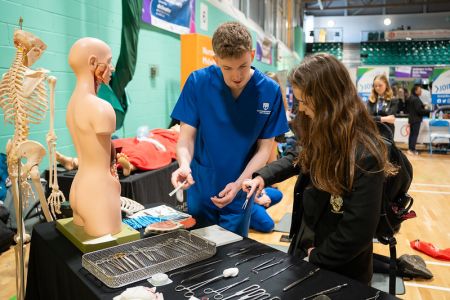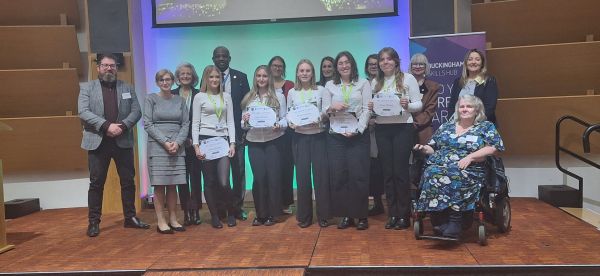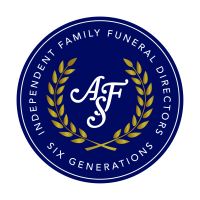- By Buckinghamshire Business First
- 7 August, 2024
Share by email
On July 29th 1948, 16 injured UK servicemen and women, all with spinal cord injuries, took part in an archery competition in Stoke Mandeville.
Fast forward 76 years, and as many as 4,400 athletes from around the world will be competing in 22 sports in Paris in front of an estimated combined global TV audience of 4.1 billion people.
Yes, that's right...
Buckinghamshire is the Birthplace of the Paralympics!
The genesis of the Paralympic Games is found in Stoke Mandeville and the inspiring work of Sir Ludwig Guttmann, who founded the Stoke Mandeville Games in 1948.
This legacy is something for Buckinghamshire to be immensely proud of, and it should serve as inspiration for everyone who lives, works and runs a business in the county to try and uphold the values that the Paralympic Movement holds dear: Determination, Inspiration, Courage and Equality.
Disabilities are unique
It's important to understand that there are many different types of disability, such as:
- physical (chronic fatigue, chronic pain, impaired movement/mobility, injury, loss of limb/s, muscular dystrophy)
- neurological (concussion, seizures, autism, cerebral palsy, ADHD, epilepsy, dyslexia, dyspraxia, speech disorders)
- sensory (impaired hearing, vision, smell, touch, taste or spatial awareness)
- mental health (depression, anxiety disorder, bipolar disorder, OCD, schizophrenia, eating disorder, post-traumatic stress)
Ability is universal
Watching the Paralympic Games, as with the Olympic Games, is to marvel at the dedication and near-superhuman physical talent on show. No viewer can be left in any doubt that ability truly is universal and incredibly diverse.
Despite this, it cannot be denied that in day-to-day life disabled people still face extraordinary challenges when trying to do ordinary things, such as learn what's on a menu in a restaurant (no menus in braille) or reach the first floor of a building (no ramps or lifts).
According to the social model of disability, people with impairments are 'disabled' by their environment, not their condition. That is, society is to blame if a disabled person is not able to enter a building because there is no accessible entry point. This mindset shifts the focus away from what disabled people are not 'able' to do, to what society is not actually allowing disabled people to do.
Why this matters to businesses
The evidence suggests that businesses that have diverse and inclusive workforces perform better than those that don't.
Yet the fact remains that disabled people are far less likely to be in employment than non-disabled people (5 in 10 disabled adults are in work compared to 8 in 10 non-disabled adults).
Businesses are not deliberately hamstringing themselves. They just need support and information to see the business benefits of hiring disabled people.
It's about being Disability Confident
Being an inclusive employer who is disability confident simply means being aware of different people in society and being open to employing them, looking past a perceived obstacle and instead seeing the person and the opportunity. That's how the best teams are created.
Developing a Disability Inclusive Workforce - an employer guide
The Disability Inclusion Guide explains the benefits of hiring disabled employees and is packed full of information and resources on how to:
- support new and existing disabled employees
- ensure your recruitment process does not exclude people based on disability
- talk about disability in an inclusive way
- learn about different disabilities and conditions
- become a disability confident employer
- develop the best team possible
Disability Confident scheme
The Disability Confident scheme helps employers make the most of the talents that disabled people can bring to the workplace. It's completely free, with access to guidance, good practice, resources, and ongoing support to:
- recruit and retain disabled employees through an accessible recruitment process
- adapt in the event of current employees becoming disabled
- reap the benefits of diverse perspectives and talents
- provide equal opportunities for career development
- make reasonable adjustments to create accessible working environments
Learn more about the Disability Confident scheme here.
"Disability Confident is a brilliant scheme designed to help employers think differently about disability to help them attract, recruit and retain workers with disabilities." – John Wallbank, Fairhive Homes
The benefits of a diverse and inclusive workforce
Financial and performance benefits
- Research by Accenture shows that companies that hire disabled people tend to outperform others, with higher productivity, revenues and profit margins.
- Employees with disabilities can draw on their own experiences to help identify innovative improvements to products, services and processes, which can attract a wider pool of customers.
- It makes commercial sense to build a team that reflects the customer base. An estimated 16 million people in the UK have a disability.
- Disabled customers and their families wield significant purchasing power, known as the ‘purple pound’, contributing £274 billion annually to the economy.
High work quality
- While a job means a lot to most people, it can be even more important for a disabled person given the disability employment gap.
- Helping disabled people thrive and bring their whole selves to work creates motivated, reliable and high-performance employees.
- A study by the Institute of Corporate Productivity showed that 3 in 4 employers find employees with special educational needs and disabilities (SEND) to be just as good as, or even better than, others in terms of work quality, attendance and motivation.
Lower employee turnover
- Organisations with a positive and inclusive approach to managing disability can benefit from increased loyalty and commitment from staff, meaning less staff turnover and lower recruitment costs.
- Listen to Fairhive Homes' John Wallbank talk about the benefits his business has seen from adopting an inclusive mindset, including their very low staff turnover.
A wider talent pool
- 1 in 5 working age adults has a disability, making for a wide talent pool that businesses can’t afford to ignore against the backdrop of an aging population and chronic skills shortages.
- Employers compete with each other to hire the best candidates, so the employer that casts their net as wide as possible will reap the rewards.
- After all, if your business needs different skills, you need to look in different places.
Improved workplace culture and morale
- Providing an inclusive workplace culture and fair employment opportunities improves the morale of all staff.
- A wider range of experiences helps employees develop more empathy for customers and each other, helping boosting team performance and company productivity.
Lead the way
- The Equality Act 2010 protects people against discrimination at work because of their disability or long-term health condition. But it is no longer enough just to know that disability discrimination is unlawful.
- The way to provide equal job opportunities to all deserving candidates is to create inclusion.
- Play your part by creating inclusive recruitment and retention practices and set a real-life example to other businesses of the multiple benefits you reap by doing so.
Learn more about building your business's disability confidence
To read more about the Disability Confident scheme and the business benefits of hiring disabled people, visit our dedicated Disability Confidence page.
There really is no better place than Buckinghamshire to be disability confident!
Have any questions? Contact our Workforce Skills Team who can provide support and point you in the right direction - email [email protected] or call 01494 927130.
Further information and support
- Vicky Hope-Walker of the National Paralympic Heritage Trust shares some accessibility ideas for businesses to implement
- Does your business welcome people with visible and hidden disabilities?
- Disability charity Scope's ‘End the Awkward’ campaign aims to help people feel more comfortable talking about disability
- Paralympic Flame to be created at Stoke Mandeville for all future Paralympic Games
- The Paralympic Games run from August 28th - September 8th
Image: The Stoke Mandeville Games in 1948 - the forerunner for the Paralympics. ©WheelPower © Buckinghamshire Archives and the International Wheelchair and Amputee Sports Federation







